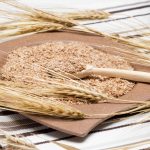There is a chronic, non-contiguous inflammatory skin disease that is getting more and more attention in Western society because of the growing number of population that is suffering from it: Psoriasis.

4 Systems Involved in Psoriasis
It is a complex condition with multiple system involvement. In susceptible individuals the inability to process essential fatty acids, digestive problems, liver sluggishness and an over-active cellular immunity are behind the hyper-proliferation of skin cells in certain areas of the skin.
Food Allergies Maybe Involved
The mucus membrane in the intestine of psoriatic patients, even without digestive symptoms, has shown microscopic lesions and greater intestinal permeability which is behind the aetiology of food allergies.
Factors: Stress, Alcohol, Processed Foods, Antacids
Factors lowering digestive power and increasing the imbalance of the bowel flora have been the suggested cause of the flare up of the disease: such as stress, excessive alcohol and processed/refined food consumption and repeated antacid use.
c&g Imbalance

Excessive replication of the skin cells is a result of an imbalance in the ratio between two internal compounds that control the rate at which skin cells divide: cyclic Adenosine monophosphate (cAMP) – which increases; and cyclic Guanidine Monophosphate (gAMP) – which decreases cell replication. Undigested food particles are metabolised by gut bacteria into polyamines in the bowel, which alters this ratio and increase proliferation rate.
Poor Digestion Results in Flair ups
Poor digestion also leads to more pathogenic microbes in the gut. These bad bacteria and fungi produce excessive amounts of toxins.
Now couple this up with a low fibre diet causing constipation, where toxins have plenty of time to get re-absorbed from the bowel and you will end up with an overwhelmed liver and a flare up.
Alcohol Makes it Worse
Alcohol is exceptionally bad for this condition as it increases toxin absorption from the intestines and it also interferes with liver function. Treatment …
Treatment
This Complex Problem Requires Complex Solution
Knowing the complexity of psoriasis, one can understand that the treatment of this condition involves more than just applying an immune suppressing cream and should be done in stages to prevent flare-ups.
Identify Food Allergies
In 95% of cases there are food allergies involved, so identifying and eliminating these allergens is recommended, as every time you ingest these allergenic foods you end up with a systemic inflammation and a flare up.

Eliminating food allergens is recommended.
Vitamin D3 Helps
The reason why Psoriasis gets better on exposure to sunlight is that the skin produces Vitamin D at the activation of UV light. Vitamin D has the ability to re-balance the immune system and slow the proliferation of the skin cells, so get some serious sunshine – mostly in the safe morning hours. In the winter months supplementation with Vitamin D3 can be helpful.
As always, a naturopathic treatment always starts with a thorough investigation to find the root of the problem, whatever the health concern may be. We are all very individual: as there are no two snowflakes alike, neither are any two human bodies. Once we found the cause, with a tailor made menu plan and herbal supplement regime your body can be gently ushered back to health – without side effects.



